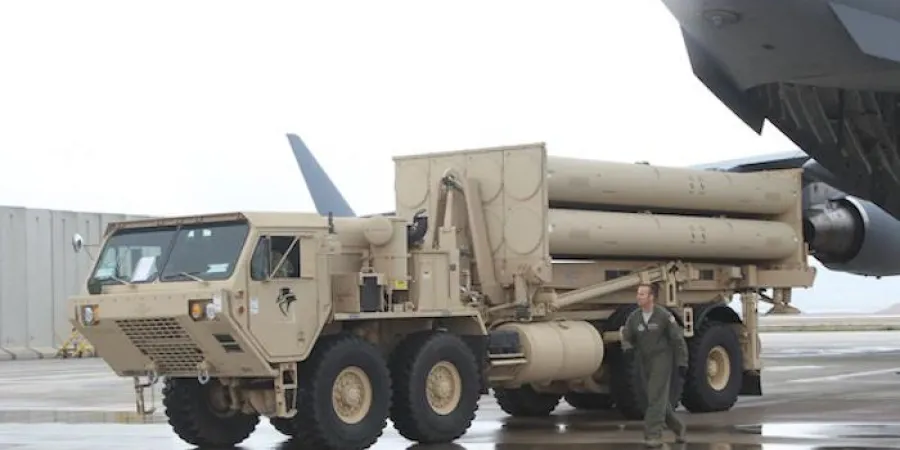Biden reducing US presence in Middle East in order to deal with China and Russia
The administration is reducing the number of missile and air defense systems as well as troops in the Middle East. The focus is on threats from China and Russia
Dan Arkin
| 20/06/2021
The Biden administration is significantly reducing the number of its anti-missile systems deployed in the Middle East as part of a realignment of US forces due to a need to focus on challenges and threats from China and Russia.
Official sources in Washington told the Wall Street Journal that the Pentagon is withdrawing about eight Patriot missile batteries from Iraq, Kuwait, Jordan and Saudi Arabia, as well as an advanced THAAD air defense system, and is reducing the number of fighter jet squadrons deployed in the region.
The removal of forces, the newspaper wrote, reflects a number of changes that occurred recently in the Middle East, as well as strategic imperatives by the administration. Among others, the war in Afghanistan is coming to an end. The administration is interested in directing its efforts at countering China, which is its main competitor in the national security landscape.
As for Iran, the biggest enemy of the U.S. in the Middle East, the administration aspires to negotiate a renewal of the 2015 nuclear agreement in a revised version. Among the additional reasons for the withdrawal of the forces are that allies such as Saudi Arabia have improved and expanded their defenses in the face of the Iranian-backed Houthi rebels of Yemen.
The Biden administration is also interested in establishing more manageable ties with Russia so less time can be spent worrying about cyber threats and building up forces. The U.S. has 2,500 troops in Iraq, and it is possible that the number will be reduced because Washington believes that the Iraqi Army is capable of defending the country.
The sources explained that even after the aforementioned withdrawal of forces from the Middle East, the U.S. will have many troops in Iraq and Syria, and those troops are not leaving. "We still have our bases in the countries of our Gulf partners, they aren’t shutting down, there is still substantial presence, substantial posture in the region," an administration official said.
The administration is reducing the number of missile and air defense systems as well as troops in the Middle East. The focus is on threats from China and Russia
The Biden administration is significantly reducing the number of its anti-missile systems deployed in the Middle East as part of a realignment of US forces due to a need to focus on challenges and threats from China and Russia.
Official sources in Washington told the Wall Street Journal that the Pentagon is withdrawing about eight Patriot missile batteries from Iraq, Kuwait, Jordan and Saudi Arabia, as well as an advanced THAAD air defense system, and is reducing the number of fighter jet squadrons deployed in the region.
The removal of forces, the newspaper wrote, reflects a number of changes that occurred recently in the Middle East, as well as strategic imperatives by the administration. Among others, the war in Afghanistan is coming to an end. The administration is interested in directing its efforts at countering China, which is its main competitor in the national security landscape.
As for Iran, the biggest enemy of the U.S. in the Middle East, the administration aspires to negotiate a renewal of the 2015 nuclear agreement in a revised version. Among the additional reasons for the withdrawal of the forces are that allies such as Saudi Arabia have improved and expanded their defenses in the face of the Iranian-backed Houthi rebels of Yemen.
The Biden administration is also interested in establishing more manageable ties with Russia so less time can be spent worrying about cyber threats and building up forces. The U.S. has 2,500 troops in Iraq, and it is possible that the number will be reduced because Washington believes that the Iraqi Army is capable of defending the country.
The sources explained that even after the aforementioned withdrawal of forces from the Middle East, the U.S. will have many troops in Iraq and Syria, and those troops are not leaving. "We still have our bases in the countries of our Gulf partners, they aren’t shutting down, there is still substantial presence, substantial posture in the region," an administration official said.



